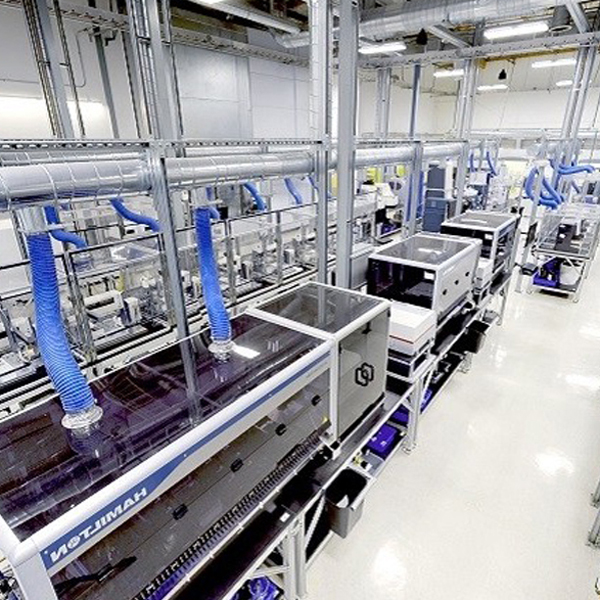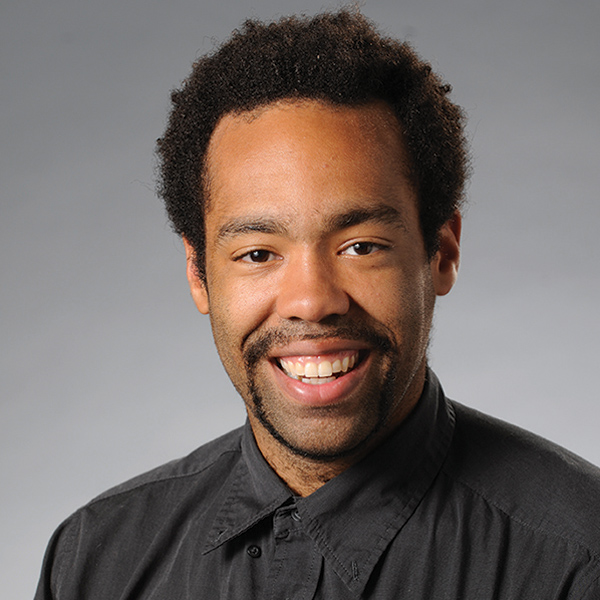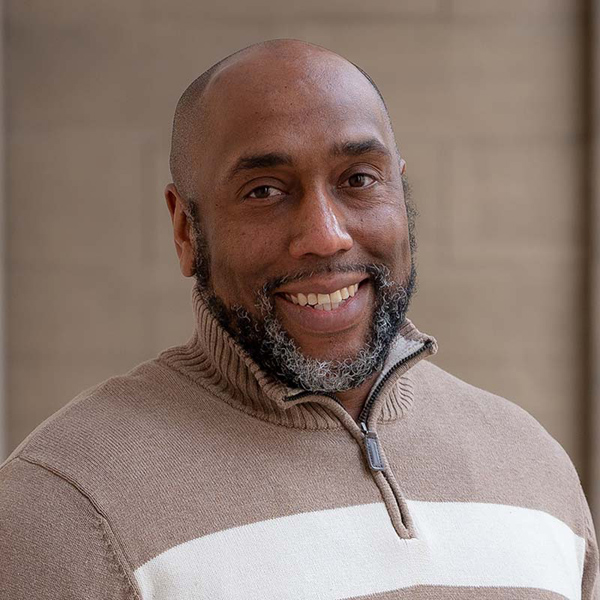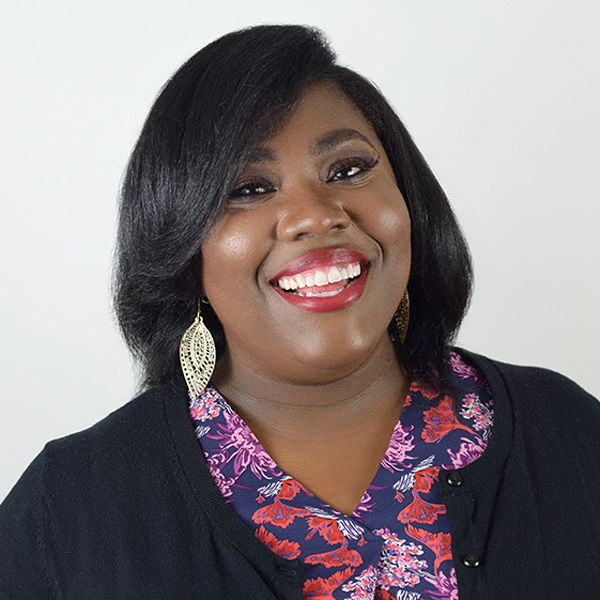S U A M I
Celebrates
30th Anniversary
30
Student Stories
The idea was to help students figure out if they wanted to go to graduate school and do research. As far as we were concerned, if they came away from it saying they didn’t want to do research, that was fine. If they came away saying they did want to do research, that was great.
After a summer conducting research at Carnegie Mellon University, Layla Montemayor knows graduate school is in her future.
A rising junior in mathematics at the University of Nebraska Lincoln, Montemayor is a first-generation college student who was part of the 2022 Summer Undergraduate Applied Mathematics Institute (SUAMI) offered by CMU’s Mellon College of Science. She worked on a project with CMU-alumni founded Emerald Cloud Lab.
“The main thing I took away from working on this project was what operations research entailed,” Montemayor said. “Before this project, I had only really seen pure math projects. If you’re unsure about graduate school either attending or what it entails, SUAMI was extremely informative. It’s helped inform my decisions for the future and what I want to pursue.”
The ECL project was one of several during SUAMI this year. The program out of the Mellon College of Science provides up to 12 U.S. students with strong academic records — regardless of background — the opportunity to work on projects related to applied mathematics under the direction of research faculty. The core values of the program have remained the same for the past three decades.
Mathematics students of any background are eligible to apply to the SUAMI program. “We look for driven students with the potential to excel in mathematics for whom the program can make a difference,” said David Offner, an associate teaching professor of mathematical sciences who directed the program this summer. The SUAMI program encourages applications from “first generation/low-income students, and students whose home institutions may not have some of the research opportunities of a larger institution.”
Professor Emeritus Steve Shreve served as the inaugural director in 1992 under then Department of Mathematical Sciences head Bill Williams. In the early years, the program — which has changed names several times — was part of the Center for Nonlinear Analysis.
“The Army Research Office (ARO) wanted us to start a summer undergraduate institute to assist with recruitment of minority students into the field,” said Shreve, the Orion Hoch University Professor emeritus. “We wanted to take students who probably had not been exposed to graduate programs and give them a taste of what that might be like in terms of problem solving and prepare them for graduate school, to see if that was something they were interested in.”
Robert Thrash came to Carnegie Mellon in the inaugural cohort. At the time, he an undergraduate at St. Olaf College.
“I was at a liberal arts school, so I had not yet seen much practical application of what we were learning. I didn’t know what to expect, and it seemed a great opportunity,” said Thrash, who graduated from Carnegie Mellon with a master’s degree in applied mathematics in 1996. Since then, he has worked in the banking industry and is now a treasury manager at Millennium Management. “CMU is always the applied math place, and I got exposure to a brand new world, in particular, mathematical finance. The program was just beginning, and I was getting to see and talk to people who were in the middle of it.”
When Williams took SUAMI’s reins in 1996, the ARO grant was wrapping up. He applied for National Science Foundation funding and other grants to move the program forward.
“An operation like this is big,” Williams said. “Not only did we have the research, but the program had other components like two credit-bearing classes: one specialty applied math class and a Maple Lab, research presentations by CMU and outside speakers, and various group activities, which started with Steve and his annual picnics.”
SUAMI participants explored Pittsburgh through Pirates baseball game outings, trips to Kennywood and the Three Rivers Arts Festival. Funding for the program today predominantly comes from the Department of Mathematical Sciences, the provost’s office and the Mellon College of Science.
“SUAMI has done a remarkable job given the limited funding,” said Aris Winger, who attended SUAMI in 1997. “Every year we scramble to find funding for it. The math department at MCS has made a commitment to having a diverse mathematical group in general.”
Winger wanted to be an actuary. But when one of his Howard University professors suggested he consider SUAMI, his life took a different path.
“SUAMI was transformative for me, and that whole sequence changed my life,” Winger said. “I had never been out of the city of Washington, D.C., and never traveled. I had lived at home in undergrad. It was all new for me, and I was in such good hands going into the program.”
“The leadership that Williams built encouraged looking for brilliant mathematicians everywhere. It’s such a component of service that the university offers,” Winger said.
To find students from smaller institutions, Shreve and Williams connected with the National Association of Mathematicians (NAM), a professional organization that promotes excellence in the mathematical sciences for African Americans and other underrepresented minorities, and minority serving institutions, as well as SACNAS, the Society for Advancement of Chicanos/Hispanics & Native Americans in Science.
Johnny Guzmán attended the program in 1998 as a senior at California State University, Long Beach. At the time, he thought he wasn’t ready to apply for a Research Experience for Undergraduates program.
“SUAMI had a great atmosphere, everyone was extremely encouraging and positive,” said Guzmán, now a faculty member at Brown University. “It was a very good way to see how graduate school life could be and what I needed to do to get there. ‘Shoot for the stars,’ that was the message I received. It felt really good.”
As a graduate student and SUAMI teaching assistant, Winger recalled meeting Michael Young for the first time at the 28X bus stop, where students first arrive on campus from Pittsburgh International Airport. Now the inaugural associate dean for Diversity, Equity and Inclusion for the Mellon College of Science, Young had arrived in 2002 as a junior from the University of Florida.
Winger, who was named NAM’s executive director in February, showed Young what was personally and academically possible at CMU. Bill Hrusa, a mathematical sciences professor and longtime SUAMI project adviser, also encouraged him to push himself.
“I had a lot of needs as a student who had limited experiences relative to other students coming in,” said Young, who returned to CMU for his master’s and doctoral degrees. “I was able to get over those humps with the faculty and resources invested in me as a graduate student. So, in my role as associate dean, I’m always thinking about that when I’m designing and creating the program.”
Brittany Mosby, a SUAMI and Carnegie Mellon alumna, also is thinking about supporting programs for student success. A mathematics major at Spelman College, she was considering applying to the federal government when a professor suggested she give SUAMI a try in 2006.
“The government was the largest employer of mathematicians,” said Mosby, who also is a NAM board member. “Prior to attending, that was the ceiling of my thinking. I can’t emphasize enough how the program was a major decision point for me in pursuing graduate school.”
After graduation, Mosby earned her master’s in mathematical sciences in 2010 at Carnegie Mellon and her Ed.D. in Higher Education Leadership and Policy in 2019 at Vanderbilt University. She is the first director of HBCU Success in Tennessee and advocates for the state’s seven historically black colleges and universities.
“We’re the only state that has this type of policy director position, and it’s a lot of building the plane as we’re flying it. It’s been quite an adventurous ride,” she said. “I get to advocate for underrepresented students and underfunded institutions. It’s become a passion.”
While many of the 200+ SUAMI participants went to graduate school, not all did. And that was OK, said Deb Brandon, an associate teaching professor emeritus, who directed SUAMI from 2007 to 2019.
“The idea was to help students figure out if they wanted to go to graduate school and do research,” said Brandon. “As far as we were concerned, if they came away from it saying they didn’t want to do research, that was fine. If they came away saying they did want to do research, that was great.”
Prasad Tetali, head of the Department of Mathematical Sciences since 2021, said that in all its versions SUAMI has been a model program.
“SUAMI has served as a pioneering vehicle for DEI efforts in recruitment, training and placement. The math department and CMU have a lot to be proud of, given that this effort was conceived 30 years ago,” Tetali said. “It provides an excellent research experience to all participants regardless of background.”
■ Heidi Opdyke

Summer Researchers Offer Emerald Cloud Lab Optimization Ideas

The Future of Mathematics

Seen, Heard and Supported

